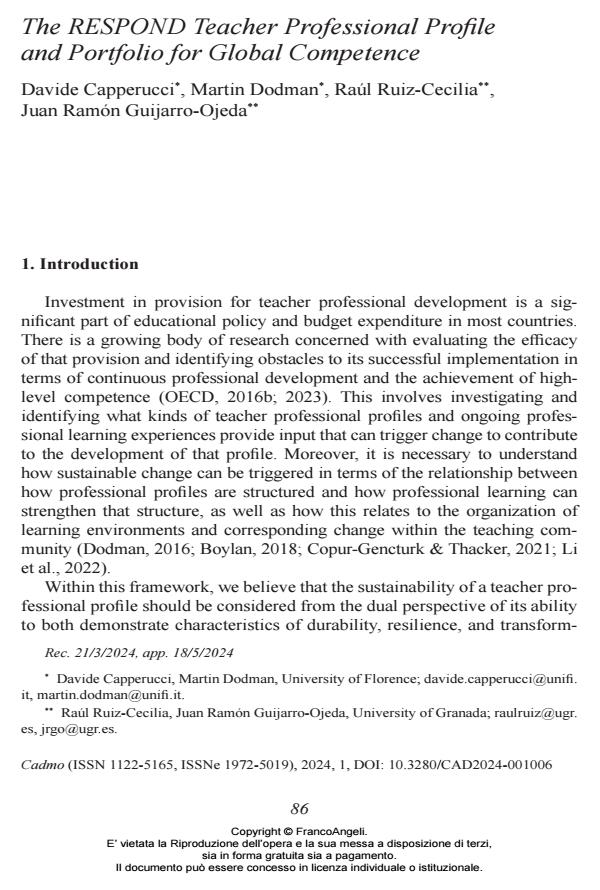The RESPOND Teacher Professional Profile and Portfolio for Global Competence
Titolo Rivista CADMO
Autori/Curatori Davide Capperucci, Martin Dodman, Raúl Ruiz-Cecilia, Juan Ramón Guijarro-Ojeda
Anno di pubblicazione 2024 Fascicolo 2024/1
Lingua Inglese Numero pagine 17 P. 86-102 Dimensione file 228 KB
DOI 10.3280/CAD2024-001006
Il DOI è il codice a barre della proprietà intellettuale: per saperne di più
clicca qui
Qui sotto puoi vedere in anteprima la prima pagina di questo articolo.
Se questo articolo ti interessa, lo puoi acquistare (e scaricare in formato pdf) seguendo le facili indicazioni per acquistare il download credit. Acquista Download Credits per scaricare questo Articolo in formato PDF

FrancoAngeli è membro della Publishers International Linking Association, Inc (PILA), associazione indipendente e non profit per facilitare (attraverso i servizi tecnologici implementati da CrossRef.org) l’accesso degli studiosi ai contenuti digitali nelle pubblicazioni professionali e scientifiche.
This paper presents the first product of the RESPOND European Erasmus+ project on the mutually sustaining relationship between teacher professional development and overall school development. The focus is on the RESPOND Teacher Professional Profile and Portfolio for Global Competence, developed as a tool for building a teacher professional profile and promoting a self-assessment process within a framework of sustainable teacher professional development in professional learning environments and communities. The paper presents an overview of the RESPOND project, illustrates each of the components of the profile and portfolio, and concludes with a reflection on the aims and the intended impact of the tool.
Parole chiave:RESPOND, teacher professional profile, portfolio, global competence, sustainability.
Davide Capperucci, Martin Dodman, Raúl Ruiz-Cecilia, Juan Ramón Guijarro-Ojeda, The RESPOND Teacher Professional Profile and Portfolio for Global Competence in "CADMO" 1/2024, pp 86-102, DOI: 10.3280/CAD2024-001006